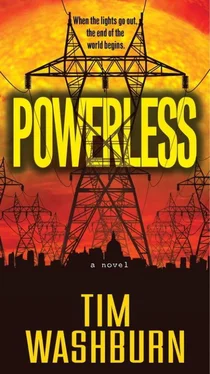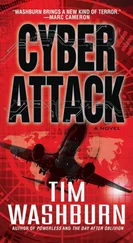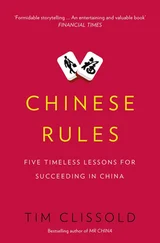“We can, sir, and we will. I ordered a ramp-up in munitions supply, and they’re being loaded as we speak and should be en route within the hour.”
“Is that the most critical problem we’re facing, Admiral?”
“That’s one of them, sir. There are two other critical problems we’re dealing with. The first is the lack of real-time satellite imagery of the battlefield. We’ll need to rely on drones to be our eyes.”
President Harris leans forward in his chair. “The Iranians are in the same boat, Admiral. With the sophistication of our weapon systems we should have an enormous advantage over them. What’s the other issue?”
“That sophistication of our weapon systems, sir. Most everything in our arsenal relies on GPS for targeting. AWACS will be of some help on the battlefield, but there’s a high probability for considerable collateral damage. Without those GPS satellites it’ll be like shooting in the dark, sir.”
“Do the best you can, Admiral. That’s all we can expect under the circumstances.” The President leans back in his chair and sweeps his gaze around the table. “Now, another matter we need to discuss: what can we expect from the Chinese?”
All eyes turn to Secretary of State Allison Moore. In her midfifties, Allison appears much younger, due mainly to her maniacal morning workouts at the White House gym. Never married, she has devoted her life to public service, serving in numerous positions within the State Department. Her not being married is a source of speculation among those within the Beltway, but those closest to her know that Allison is twelve years into a committed relationship with her partner, Jill, a professor of music at Georgetown.
“I need to defer to CIA Director Green for some of this, but from what my staff put together, China is in a position similar to ours—basically the entire country is without power. I spoke with Ambassador Chen during our brief break to get the latest.
“The Chinese are not happy with Iran’s aggressiveness, especially at such a difficult time for most of the world. They are more concerned, at present, with their own domestic situation. Frankly, sir, I believe they will actually be pleased if we bloody Iran’s nose. With the political mess in both Afghanistan and Pakistan, they’re concerned Iran could spread its forces eastward toward their border.”
President Harris kneads the back of his neck. “So are they willing to be a part of our response?”
“No, I don’t believe they will, sir. They will be content with turning a blind eye to the whole situation.”
“What about the Syrians and the Jordanians, Allison?”
“They’re none too happy about having Iranian troops at their borders. But Syria is in such political upheaval it will be impossible to build any sort of consensus among the arguing factions. The whole country is a simmering cesspool. Jordan, on the other hand, may offer some resistance but their effectiveness is severely hampered by their own devastating lack of electrical power.”
President Harris shrugs. “We’re in the same boat, yet everyone looks to us to fix the world’s problems,”
“Nature of the beast, sir. We at least have generators and a flotilla of naval ships. The Jordanians have nothing. They may never fully recover.”
“Any chance diplomacy will force Iran to withdraw its troops?”
“No, sir, I don’t believe there is. We tried to contact the Iranian ambassador but apparently he was recalled sometime yesterday. He disappeared in the night. The Iranians don’t want to deal, sir—they want to wipe Israel from the world map.”
The President turns to the CIA director. “Isaac, do you concur with Allison’s assessment?”
“I do, sir. We’ve played the diplomacy card numerous times only to have the Iranians change the rules midgame.”
President Harris nods, then turns his focus to Martin Wilson, secretary of defense. “What do you think, Martin?”
“Mr. President, we are ready to proceed with whichever direction you wish to go.”
“That’s a political nonanswer, Martin,” the President says with a flash of anger. “Let me put it more succinctly—do you think we should launch an attack on the Iranian troops now in northern Iraq?”
The SECDEF expels a noisy exhale. “I think we have to, sir. Israel is one of our staunchest allies. If we let Iran walk into Jerusalem with no response from the United States, the rest of our allies will abandon ship before it even begins taking on water.”
President Harris turns back to Admiral Hickerson. “How long before the action could commence?”
The admiral leans back in his chair and crosses his arms. “I would like to delay another twenty-four hours to allow Strike Group One to get on station. That will put three carriers in theater.”
The President turns to the rest of his advisors. “Do we have twenty-four hours?”
“Maybe,” the CIA director answers. “According to the latest intel, the Iranians are slowing their advancement. I assume they are trying to broker a deal with the Syrians and the Jordanians for safe passage. But I wouldn’t push it any further past the twenty-four-hour time frame.”
President Harris takes a deep breath. “Admiral, put everything into place. We are a go the instant Strike Group One is within striking distance.”
Texas
The sound of gunfire bolts Zeke upright from a dead sleep. He reaches for the Glock and panics when his hand finds air. His brain fights for clarity. Then he remembers taking the gun and the holster off sometime during the night after the grip had dug into his side one too many times. He scrambles around on all fours as the faint beginnings of daylight leak through the cracks of the old barn planking. His hand brushes across cold steel. He grabs the gun, reattaches the holster to his belt, and jumps to his feet. He grabs for his boots and, hopping one-legged in a tight circle, pulls on one, then the other.
There are no more gunshots, but he doesn’t know if that’s a good thing or a bad thing. Maybe whoever is shooting hit their target with the first shot. A sense of dread descends on him as he stalks toward the sliding door. He eases the door open a few inches and sneaks a peek outside. Nothing seems to be amiss—no armed mob assembled on the small patch of grass fronting the house. He slides the door open a little farther and pops his head out.
He spots a figure walking in the foggy haziness of first light. He can’t tell from this distance if the walker is Summer or someone sinister. The person is toting a gun, evident by the dark shape of the barrel silhouetted against the gray horizon. He or she is also carrying something else in the other hand. Shivering from the early-morning chill, he slips out of the barn and creeps closer, one hand resting on the butt of his gun. Hunched over to lessen his target profile, he gets within twenty yards when Summer turns toward him, a wild turkey dangling from her grasp.
“You scared the hell out of me,” Zeke says.
She waves him forward. “Come warm up by the fire. Sorry about waking you, but a whole flock of wild turkeys were grazing at the edge of the field. Couldn’t pass up the opportunity.”
He reaches his hands toward the fire and rubs them together as he studies her. Her curly mop is gathered up in a ponytail this morning, allowing him an opportunity to study her in profile. Her nose and chin are aligned in a near straight line and her deep-set eyes have a slight upturn. No jewelry dangles from her ears, but Zeke spots a couple of holes in her lower lobe. She probably hasn’t showered in over a week, or washed her hair, but she is no less stunning. Dressed in jeans with a rip on one knee and an oversized sweatshirt draped off one shoulder, she moves the coffeepot closer to the edge of the fire. “Coffee will be ready in a jiff.”
Читать дальше












